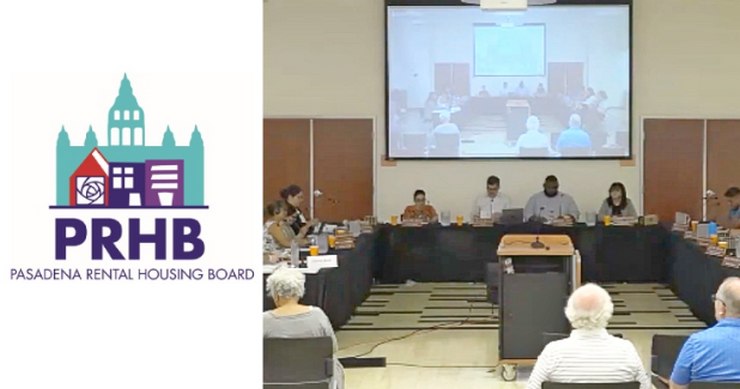It was the end of a very long summer, and my wife Laura and I finally took a vacation. We went to Hawaii and stayed on the beautiful island of Oahu at a resort in Waikiki. It was right on the beach with a gorgeous view of the clear blue ocean. Because it was my first time in Hawaii, I had a huge bucket list of things I wanted to do while we were there; I wanted to see and do everything imaginable. So we drove our convertible rental car all over the island, hiked up a volcano, went to four different beaches, ate a lot of pineapple and shaved ice, went sea kayaking, swam under a waterfall, went to a luau with fire dancers… just to name a few activities. By the end of the trip, we were more exhausted than we were before we left for vacation. We went on this vacation to rest and relax, but we both came home sick because of how exhausted we were!
I’m guilty of being someone who doesn’t know how to rest. I love to be active and work hard, so I get a little anxious when I sit still for too long. Maybe you can relate. Maybe your life is really busy and stressful like mine: you are active and involved in so many things, you work really hard, and sometimes you forget to just stop and rest. As a youth pastor, I see so many high school students who are even more stressed out, anxious, and rest-less than I am. So many expectations are placed on today’s teenagers, everything from getting good grades, to excelling at sports, to winning awards and scholarships, to participating in as many extracurricular activities as possible. And let’s not forget the added pressures of dating, friendships, and family.
Dr. Tim Elmore is a best-selling author and speaker who is an expert on leadership and young people. He cites a recent report from the Anxiety and Depression Association of America that says one in eight children suffers from an anxiety disorder. It is very difficult, especially in today’s world, for teenagers to navigate the overwhelming stress thrown at them on a daily basis. Dr. Elmore observes two realities that have led to what he calls the “stress dilemma” among today’s young people:
“Teens have never been more pressured by adults to make the grade, make the team, make the cut, and make a difference. They feel like losers if they’re not the best. Teens have never been more devoid of coping skills to handle adversity. This is due to adults overconnecting, over-protecting, overserving, and overwhelming them.”
At the beginning of the book of Exodus, we find out that the ancient Israelites had become slaves in Egypt. Pharaoh put them to work in his kingdom as brick builders and field laborers. They worked all day and never got time off. All they knew was pain, suffering, work, and hard labor. It was a brutal existence. Their worth was attached to what they produced, to how many bricks they made.
Many of us know the story well: God and a guy named Moses teamed up to free the Israelites from bondage under Pharaoh. They started a new chapter of their history as a freed people. God gave these freed Israelites new laws to live by as they started their new chapter as a holy nation. One of those laws had to do with rest:
Keep the Sabbath day and treat it as holy, exactly as the Lord your God commanded: Six days you may work and do all your tasks, but the seventh day is a Sabbath to the Lord your God. Don’t do any work on it—not you, your sons or daughters, your male or female servants, your oxen or donkeys or any of your animals, or the immigrant who is living among you—so that your male and female servants can rest just like you.
Remember that you were a slave in Egypt, but the LORD your God brought you out of there with a strong hand and an outstretched arm. That’s why the LORD your God commands you to keep the Sabbath day. Deuteronomy 5:12-15, CEB
The word “Sabbath” comes from a Hebrew word that means “stop” or “cease.” God wanted Israel to have a Sabbath day when they would stop working. They wouldn’t spend this day laboring hard in the fields – instead, they would stop and rest and thank God for it. God wanted everybody to do it – family members, leaders, servants, donkeys, oxen – everybody, even animals, was to stop and rest on the Sabbath day. The Sabbath day was grounded in the order of the world that God set in motion from the very beginning, a rhythmic order of work and rest.
Imagine you were an ancient Israelite. You spent your whole life as a slave in Egypt where your entire existence was defined by work. Your identity, your selfworth, and everything about you was wrapped up in what you produced, in the work you did, in how many bricks you made. Then God came along and said, “Work is good, but I’m commanding you to stop and rest. Stop working and just be.” God didn’t want Israel’s identity to be wrapped up in what they did or in their work. Their identity was in God and God alone. This was a weird law because it went against everything Israel knew to be true. This God declared that they were more than the bricks they made. This God declared rest to be a holy thing.
We’re a lot more like the ancient like the ancient Israelites than we think.
How often do you get caught up in the stress and busyness of life? How often do you forget to stop and rest? How often do you define yourself by your work, by your jobs, by your careers, by the money you make, by the stuff you produce? These are not inherently bad things (I’ll be the first to admit that I love my job!). But when we start attaching our self-worth and identity to what we produce, we are living in slavery and not in the freedom of being chosen and loved by a redeeming God.
We use this metric system for our young people, too. High school students, in particular, are defined by their marketable talents, athletic abilities, GPA and SAT scores, part-time jobs, community service hours, and church participation. Stopping and resting is difficult to do when so many other things demand their attention. What if they get behind? What if they miss out on something? The pressure can be unbearable. Dr. Elmore says, “Our young people are far too valuable—and their future is far too important—to allow stress to dictate these years they spend preparing for adulthood.” I agree, and I think the biblical idea of Sabbath can help our young people with the constant stress and anxiety they face on a daily basis. It can help us adults, too.
The stress and busyness of life are not always bad things. What’s bad is when we let them define who we are. Our identity and self-worth is not attached to how hard we work or how many bricks we make. Our identity is not based on what we do, in what we produce, or how good we are at different things. Our identity is found in a God who loves us and invites us into an order of the world with a healthy work-rest balance. Sometimes we just have to stop, rest, and realize who we are and to whom we belong.
– Pastor Drew Vinson
First Church of the Nazarene Pasadena, 3700 E. Sierra Madre Blvd., Pasadena, (626) 351-9631 or visit www.paznaz.org.














 0 comments
0 comments



